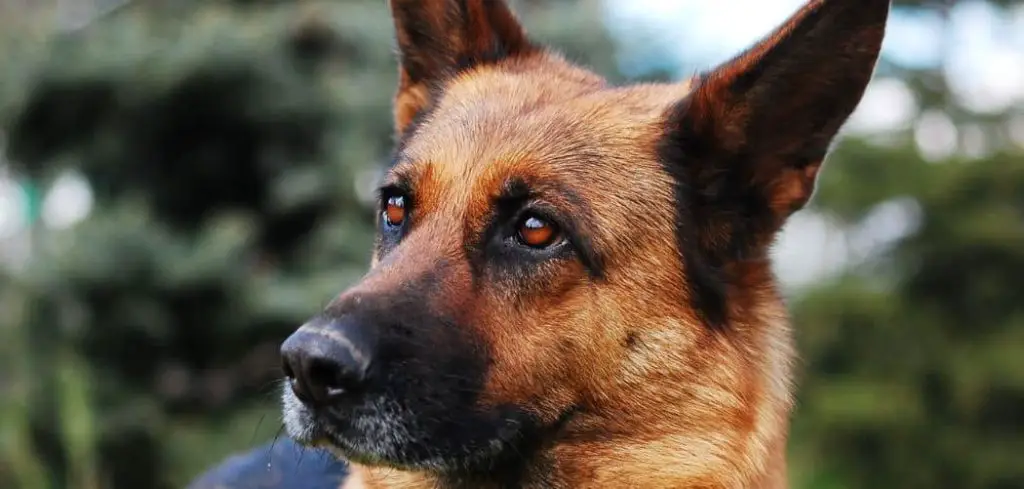A dog who seems unusually tired or lacking energy without any other visible symptoms can be concerning for owners.
While lethargy is often paired with other signs of illness, sometimes it’s the only noticeable change. This can make it difficult to know whether to wait and see or seek help.
We outline the common causes of dog lethargy with no other symptoms, what you can do at home, and when to seek veterinary help.
Dog Lethargic No Other Symptoms — Why It Happens
Lethargy in dogs without other symptoms can be caused by mild and temporary factors such as fatigue, stress, or minor discomfort. Other times, it could point to early signs of illness like infections, hormonal imbalances, pain, or heart-related conditions.
Even if your dog appears otherwise normal, unexplained lethargy should not be ignored.

Dog Lethargic No Other Symptoms: Common Causes
Mild Fatigue or Overexertion
Dogs can become lethargic simply from being tired. A long walk, play session, or a hot day can leave your dog more worn out than usual.
In these cases, the lethargy is temporary and usually improves after a good rest. Owners may notice their dog sleeping more or seeming less eager to play.
Read more: Dog Vomiting No Other Symptoms (Here’s what it means)
Early Infections
Some bacterial or viral infections may begin with lethargy before other symptoms develop. For example, urinary tract infections, kennel cough, or even digestive issues may initially show up only as unusual tiredness.
This makes early observation crucial, as these conditions often progress quickly if untreated.
Pain or Discomfort
Dogs in pain often mask obvious signs, and lethargy may be one of the few clues. Joint pain, dental pain, or internal discomfort can all make your dog less active.
Because dogs may not whine or limp, it can be easy to miss that pain is the root cause.
Heart Disease
Heart issues sometimes present subtly, with lethargy being one of the first signs. Even without coughing, breathing trouble, or weight loss, a lack of energy can signal that the heart is struggling to pump efficiently.
Over time, more symptoms usually appear, but lethargy may be an early indicator.
Hormonal Disorders
Conditions like hypothyroidism or Addison’s disease can make dogs appear sluggish long before other signs are obvious.
Hormonal imbalances affect metabolism and energy regulation, leading to persistent low energy. Because these issues often progress slowly, lethargy might be the only symptom for a while.
Emotional or Environmental Stress
Stress, anxiety, or even changes in a dog’s environment can lead to lethargy.
A recent move, loss of a companion, or loud household changes might cause your dog to withdraw and rest more. This type of lethargy may resolve once your dog feels more secure again.
Related: Dog is lethargic and not eating (Here’s why)
What to Do If Your Dog Is Lethargic With No Other Symptoms
If your dog is suddenly more tired than usual, first consider whether they may simply be resting after exertion.
Ensure they have a quiet, comfortable space and plenty of fresh water. Observe their eating habits, bathroom use, and behavior over the next 24 hours.
If lethargy persists beyond a day, it’s wise to contact your veterinarian.
Keep a note of when the lethargy started, any subtle changes you notice, and whether appetite or mood have shifted. Sometimes the smallest details help your vet identify the cause.
Avoid giving your dog over-the-counter medications or assuming rest alone will fix the problem.
While mild causes are common, lethargy can also be an early warning of something more serious.
When to Call or Visit Your Vet
If your dog’s lethargy lasts more than 24 hours without improvement, veterinary attention is recommended. Even without other visible symptoms, persistent tiredness deserves evaluation.
Seek immediate veterinary care if your dog becomes lethargic along with additional signs such as vomiting, diarrhea, refusal to eat, breathing difficulties, or collapsing.
These may point to urgent medical issues requiring prompt treatment.
You should also contact your vet sooner if your dog is elderly, has a history of medical conditions, or if the lethargy appeared suddenly and severely.
Read more: Dog Drinking A Lot of Water No Other Symptoms (What it means)
Key Takeaway
Lethargy without other symptoms may not seem alarming at first, but it can still signal important underlying health issues.
While tiredness from exertion or stress can resolve on its own, persistent lethargy should always be taken seriously.
Monitor your dog closely, provide rest and comfort, and seek veterinary advice if the behavior continues or worsens.
Your attention and timely action can make a big difference in protecting your dog’s health.
